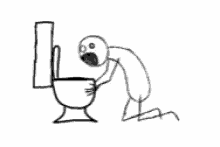Why don't you stop trying to judge what I seem to be or not to be. I am not unhappy. I don't believe you can be sorry for something that is not true. You did not note that adopting populism is to be radicalized into extremism, you said that I was threatening violence. And, here, again, you misrepresent what is actually said in a conversation. What has been supported is that you have not shown that all forms of populism are extreme. I am fine with debate, as you can see. And I am fine pointing out where you make assumptions and accusations that are unfounded. Your argument seems to be founded on, or grounded in, unsubstantiated assumptions or just plain ol' garbage.honorentheos wrote: ↑Mon Nov 08, 2021 3:19 pmYou seem unhappy. I'm sorry you feel this way. But let's be clear. Noting adopting populism is to be radicalized into extremism isn't a personal attack. It's been much debated and supported in the thread. You may not like that but such debate is what the board exists to facilitate.
The sole defining characteristic of populism as a thin centered ideology is the division of corrupt elites from the people, who are good. You've presented this very ideas and framework in the thread multiple times while denying their significance. But that's extremism. There is no room for gray between elite and the people. The line is hard and bright.
Mudde and Kaltwasser attempt to create a basis for further research. They do not have a sole defining characteristic. Even if they think they do, or attempt to provide the sole definition, they didn't achieve that purpose. Your conclusions fail to acknowledge that populism and populist leaders (who are often elite by many definitions) seek to reassert the redemptive face of democracy. They try to put certain topics on the public agenda that, either intentionally or unintentionally, are not being considered by the elites. While Mudde and Kaltwasser may use the term corrupt, you have obviously noticed by now that they exclusively use it in quotes. "Corrupt," and "corrupt elites." Their work began before the turn of the century. They have not published an empirical definition of populism. Their work was focused on Latin America and Europe, initially. More contemporary work has been done regarding the United States. Their working papers from 2011 do not describe violence. They reference extremism only to describe other ideologies, including left and right examples. They do not use "extreme" or "violent" to describe all forms or examples of populism.
I think you are more focused on me than actual research or actual facts. If you want to continue to discuss populism, have a great time. Doing so in the context of your imaginary, inflammatory and fictional interpretations of what I am, or of what I feel, or of what I am experiencing is just you having a moment and not very entertaining for me.
